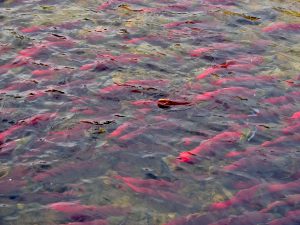
Overfishing, pollution, and human overpopulation are just a few of the reasons that wild fish are becoming more scarce and expensive. Responsible, sustainable, and environmentally conscious farmed fish will be the answer to feeding future generations.
Here at Live Ocean Seafoods, we’re committed to working with the best and most environmentally-aware aquaculture companies. Our fish are farmed in a large pens that are in open areas where crystal clear tidal waters keep the waters pure and clean. This provides the farmed fish with a healthy, safe environment.
Commercial long-line fishing and gill net fishing destroy the environment and capture fish species that are not edible, so they’re thrown away without thought to the environmental impact on the fishing areas. Moreover, commercial fishing simply depletes the ocean of its fish as the human population rises every year.
Fish farms also provide a valuable service by preserving the wild fish population and by helping prevent excess carbon dioxide in the atmosphere. How can Salmon farming do this, you may ask?
Recent studies show that surface fish caught commercially rely on tiny organisms called Phytoplankton for food. These Phytoplankton make up the foundation of the food chain for almost all sea life. Most importantly, Phytoplankton absorb Carbon dioxide, and lots of it! Billions of tons of carbon dioxide every year are absorbed by phytoplankton, then eaten by surface fish and then eaten by larger fish that reside at deeper depths but come up to feed. Once the carbon dioxide is passed from smaller surface fish to these deeper sea fish, the carbon dioxide becomes trapped under the pressures of the deep ocean water unable to return to the atmosphere. Fish and other aquatic life in the ocean are vital as they absorb carbon dioxide to a great degree, with a carbon offset cost savings of $74 billion to $222 billion in climate change damage per year.
Global climate change scientists warn that over-fishing and other commercial activities will jeopardize the oceans’ ability to provide the planet with enough fish. As the wild fish population dwindles, so too will our unique natural eco system that eliminates high levels of carbon emissions.
“Fish are actually really important in the global carbon cycle, and they’ve been rather neglected,” said Clive Trueman of the University of Southampton, lead author of the deep-sea fish study.
“I really think to use our oceans sensibly, we need to look at all the services that they provide and then find those that contribute to human welfare and well-being the most, and try to encourage that,” added Rashid Sumaila, professor and director of the fisheries economics research unit at the University of British Columbia, who co-authored the Global Ocean Commission report.
By relieving wild fish populations that are otherwise weakened by commercial fishing, salmon farming does its part to preserve our amazing planet’s natural carbon storage bank: the wild fish population. Intelligently it also helps to sustain the ocean’s fish as a rising human population continues to demand more and more seafood.
Live Ocean is dedicated to providing a sustainable present for a global future where the oceans are clean, and food is plentiful.

